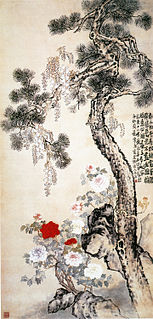A Quote by Fred Alan Wolf
The old alchemy, or what was just called alchemy, has a history. Most people, if they've been trained in sciences, think of alchemy as the precursor to chemistry. Back in time, people were called alchemists and they worked for kings and rich people, smelting metal and trying to change base metal into gold, because the king wanted to be richer.
Related Quotes
We find that alchemy has to do with magicians or magic and may even have roots in the Chaldean people who lived in the land that we now call Iraq.Abraham emerged and took a flock of people with him into Egypt. They were later called the Hebrews because of the valleys that they came out of. The alchemy that they saw was a transformative power within the individuals to affect the "out there" reality - and that, of course, is the basis of shamanism and is the basis for most magical and so-called Third World belief systems.
Of all the alchemies of human connection-sex and childbirth and marriage and friendship-the strangest is this: You can stand up and tell a story that is made entirely, embarrassingly, of "I's," and a listening audience somehow turns each "I" into a "me." This alchemy, of self-absorption into shared experience, is the alchemy of all literature.
While I was drawn to the Renaissance, my first (unpublished) novels took place in modern times. When the subject of alchemy started creeping into my stories, an astute mentor observed that the bits about alchemy might fit better in another time frame. When I finally decided to weave the pieces about the medieval science into historical settings, a successful novel began to emerge. (And I dusted off that art history book, and put it to use once again.)


































